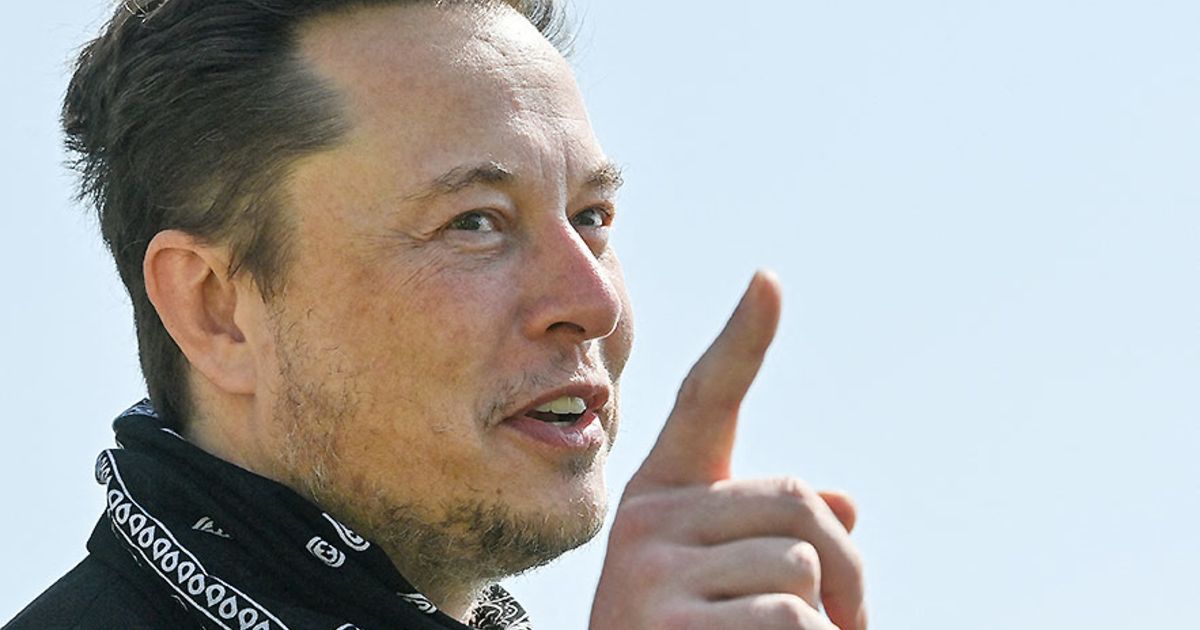
Twitter Inc. reiterated it would hold Elon Musk accountable to the terms of his proposed $44 billion takeover offer after the Tesla CEO again threatened to pull out of the deal over the issue of bots.
In a securities filing on Monday, Musk said he believes Twitter is breaching their agreement by not meeting his demands for more information about spam and fake accounts. Last month, Musk said he wouldn’t proceed with his offer unless the social media giant can prove bots make up fewer than 5 percent of its users, as the company has stated in public filings. Musk has estimated that fake accounts make up at least 20 percent.
In a statement, Twitter said it “has and will continue to cooperatively share information” with Musk. The company said it believes the deal is in the best interest of all shareholders and intends to “close the transaction and enforce the merger agreement at the agreed price and terms.”
Twitter’s shares slumped 2.6 percent Monday, reinforcing doubts that Musk would finalize his $54.20-a-share offer and further widening the gap between the market’s expectations and Musk’s price. The shares have barely — and only briefly — surpassed $50 since Musk sprung his buyout plan on April 14. The deal came together at breakneck speed in part because Musk waived the chance to look at Twitter’s finances beyond what was publicly available.
Twitter Chief Executive Officer Parag Agrawal has sparred with Musk publicly on Twitter about bots. Agrawal has said the company has human reviewers look at “thousands of accounts” to determine the prevalence of bots, but added that he couldn’t share more specifics because of privacy concerns. “Unfortunately, we don’t believe that this specific estimation can be performed externally, given the critical need to use both public and private information,” Agrawal wrote in May.
In the filing Monday, Musk sharply disagreed with Twitter’s assessment on bots.
“Twitter’s latest offer to simply provide additional details regarding the company’s own testing methodologies, whether through written materials or verbal explanations, is tantamount to refusing Mr. Musk’s data requests,” according to the filing, which was addressed to Twitter’s legal counsel, Vijaya Gadde. “Twitter’s effort to characterize it otherwise is merely an attempt to obfuscate and confuse the issue. Mr. Musk has made it clear that he does not believe the company’s lax testing methodologies are adequate so he must conduct his own analysis. The data he has requested is necessary to do so.”
Musk believes the company’s resistance to provide more information is a “clear material breach of Twitter’s obligations under the merger agreement and Mr. Musk reserves all rights resulting therefrom, including his right not to consummate the transaction and his right to terminate the merger agreement.”
The proposed takeover includes a $1 billion breakup fee for each party, but Musk can’t just walk away by paying the charge. The merger agreement includes a specific performance provision that allows Twitter to force Musk to consummate the deal, according to the original filing. That could mean that, should the deal end up in court, Twitter might secure an order obligating Musk to complete the merger rather than winning monetary compensation for any violations of it.
The demands about bots have led to suspicion among analysts that he is using it as a negotiating tactic to lower the price as tech stocks have declined in recent weeks, or to walk away from the deal altogether.
“We believe the announcement could lead to negotiations on price to avoid a big court fight,” Mandeep Singh, a Bloomberg Intelligence analyst wrote in a note. Singh said Musk’s tactic is likely a push to try to negotiate a better deal value for Twitter — and one that could get closer to rival Snap Inc.’s market cap. At a $44 billion deal value, Twitter’s enterprise value per daily active user of $200 is much higher than Snap’s $65-$70, he said.
Musk’s lawyer, Mike Ringler of Skadden, Arps, Slate, Meagher & Flom, said Twitter must cooperate by providing the data requested so that Musk can secure the debt financing necessary to consummate the deal.
Musk has lined up a group of 19 investors to back the deal, and he has said he’s talking with other Twitter shareholders, including co-founder Jack Dorsey, to roll their shares over into the private company. Last month, Musk dropped plans to partially fund his purchase of Twitter with a margin loan tied to his Tesla stake and increased the size of the deal’s equity component to $33.5 billion. He had previously announced that he secured $7.1 billion of equity commitments from investors including billionaire Larry Ellison, Sequoia Capital and Binance. Banks have already committed to providing Musk with $13 billion of debt financing.
Musk likely has a different experience with bots on the platform than most. Those designing automated accounts program them to follow popular users on a site, so that they fit in with the crowd and look more human. Musk, with a following of 96 million, probably attracts a higher percentage of bots than most users. His image has also been used by cryptocurrency accounts to run scams.
Though many outside estimates put the figure at more than the 5 percent threshold that Twitter has claimed, their assessments and methodologies vary. Andrea Stroppa, a former data consultant for the World Economic Forum and a veteran of scrutinizing online counterfeit goods, estimates that bot accounts have accounted for about 10 percent of Twitter’s global audience over the past nine years.
The rate rises to as much as 20 percent for some specific topics such as cryptocurrencies, the researcher said, and to more than 30 percent for accounts engaged in certain conspiracy theories.